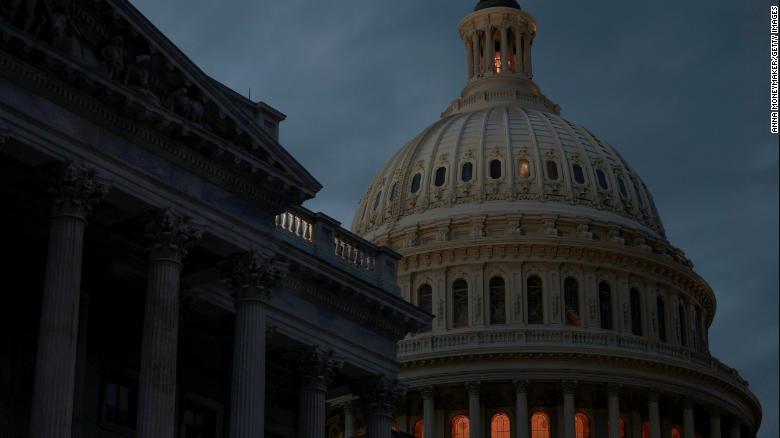
Seattle (CNN) – In the dwindling days remaining to salvage something from President Joe Biden’s Build Back Better agenda, Democratic economists see the flickering of a decades-old dream.
The dream is government action to fundamentally expand opportunity for millions of Americans left behind by shifts in the modern economy. Political tides appear poised to sweep away unified Democratic control of the White House and Congress this fall, and with it the chance to act for the rest of Biden’s term, if not longer.
“That may be five, 10, 20 years,” lamented Jason Furman, once President Barack Obama’s top economic adviser and now a Harvard professor. “It could be a generation.”
Since the 1980s, Democrats have offered a consistent refrain about the Information Age economy: that it makes the rich richer, suppresses wages for the middle class and leaves the poor falling further and further behind. To reduce inequality and expand opportunity, their economic advisers have prescribed government investments in education, health care, training, infrastructure and support for families, all financed by higher taxes on the affluent.
A political era favoring lower taxes and smaller government has allowed them only limited success.
In the 1990s, President Bill Clinton oversaw an economic boom that, while it lasted, lifted the fortunes of poor and working-class Americans. Later, Obama steered the recovery from the Great Recession and rallied a Democratic-led Congress to enact America’s first-ever national health care program.
But Republican opposition thwarted their attempts to win larger investments in “human capital” and economic change. Major legislative action on priorities such as expanding early childhood education, modernizing infrastructure and curbing carbon emissions to slow the warming of the planet fell by the wayside.
Federal spending on popular benefit programs for retirees continued to swell. Federal spending on the future — capital investment, research and development, education and training — eroded. From a peak of more than 6% in the 1960s, those budget investments fell by more than half.
Last year, Biden’s defeat of President Donald Trump and the return of a Democratic-controlled Congress triggered a burst of optimism about reversing that trend. Biden proposed trillions in spending on the coronavirus pandemic, infrastructure, climate change and help for struggling families.
Some of that optimism was vindicated. Democrats swiftly passed the rescue plan, including augmented subsidies for Obamacare health insurance and enlarged tax credits that slashed childhood poverty. Biden compromised with Republicans to enact a national infrastructure upgrade.
But additional help for families and climate change policy crashed into resistance from holdout Democratic senators. The expanded Child Tax Credit, included temporarily in the rescue plan, has expired, as the expanded Obamacare subsidies will after this year. Though private talks on reviving the Build Back Better package in some form continue between the White House and congressional Democrats, there’s no sign of a breakthrough.
The blame game has targeted multiple culprits. Republican resistance means that Democrats — with the barest of Senate majorities, including one member from a deeply conservative state — can act only with unanimity. That senator, Joe Manchin of West Virginia, either nixed a deal by changing his mind or was misread by Biden and Senate Majority Leader Chuck Schumer.
Before the rescue plan passed, veteran Democratic economist Larry Summers had issued two warnings about its $1.9 trillion price tag: that it might fuel inflation, and that it might drain support for the more important long-term investments in Build Back Better. Summers appears to have been right on both counts.”The Biden administration was not strategic about this,” complained Massachusetts Institute of Technology professor David Autor, a leading authority on the economic shifts that have kept many Americans from getting ahead. He fears the window for major action may be closing again.
“We’ve been doing this for four decades: underinvesting in ourselves, cutting taxes and running away from the future,” Autor said. “This just contributes to American decline.”
Republican economists say the extent of wage stagnation and dimming opportunity has been exaggerated. Michael Strain of the conservative American Enterprise Institute, author of the 2020 book “The American Dream Is Not Dead,” insists that Build Back Better would have set the economy back with wasteful, poorly designed programs.
Yet Strain favors some steps that overlap with Biden’s plans, such as a more limited increase in the Child Tax Credit and expanded prekindergarten programs. He sees long-shot chances for bipartisan agreement along those lines even if Build Back Better can’t be revived.
University of Maryland economist Melissa Kearney, a moderate Republican who favors much of Biden’s agenda, called continued stalemate “a terrible outcome.” She still hopes for a compromise.
“The coronavirus pandemic just revealed how vulnerable so many households are,” Kearney explained. “That can’t be unseen.
“Investing in kids is such a win-win. Millions of poor kids would do better in school, contribute more to our economy, rely less on safety net programs.”
Biden keeps making the case, including on his West Coast swing last week. “We have not invested in ourselves,” the President told donors at a Seattle fundraiser.
His remaining best-case scenario is half of last year’s $3.5 trillion blueprint, with much of the new tax revenue devoted to deficit reduction rather than new spending. Potential elements: $500 billion to address climate change, limits on some prescription drug prices, Obamacare subsidies and spending to expand early childhood education.
It wouldn’t be what he or his advisers hoped for. But it would be something.
“I don’t know when another opportunity will come along,” Furman said, “which is why I hope they can pull a rabbit out of a hat.”




